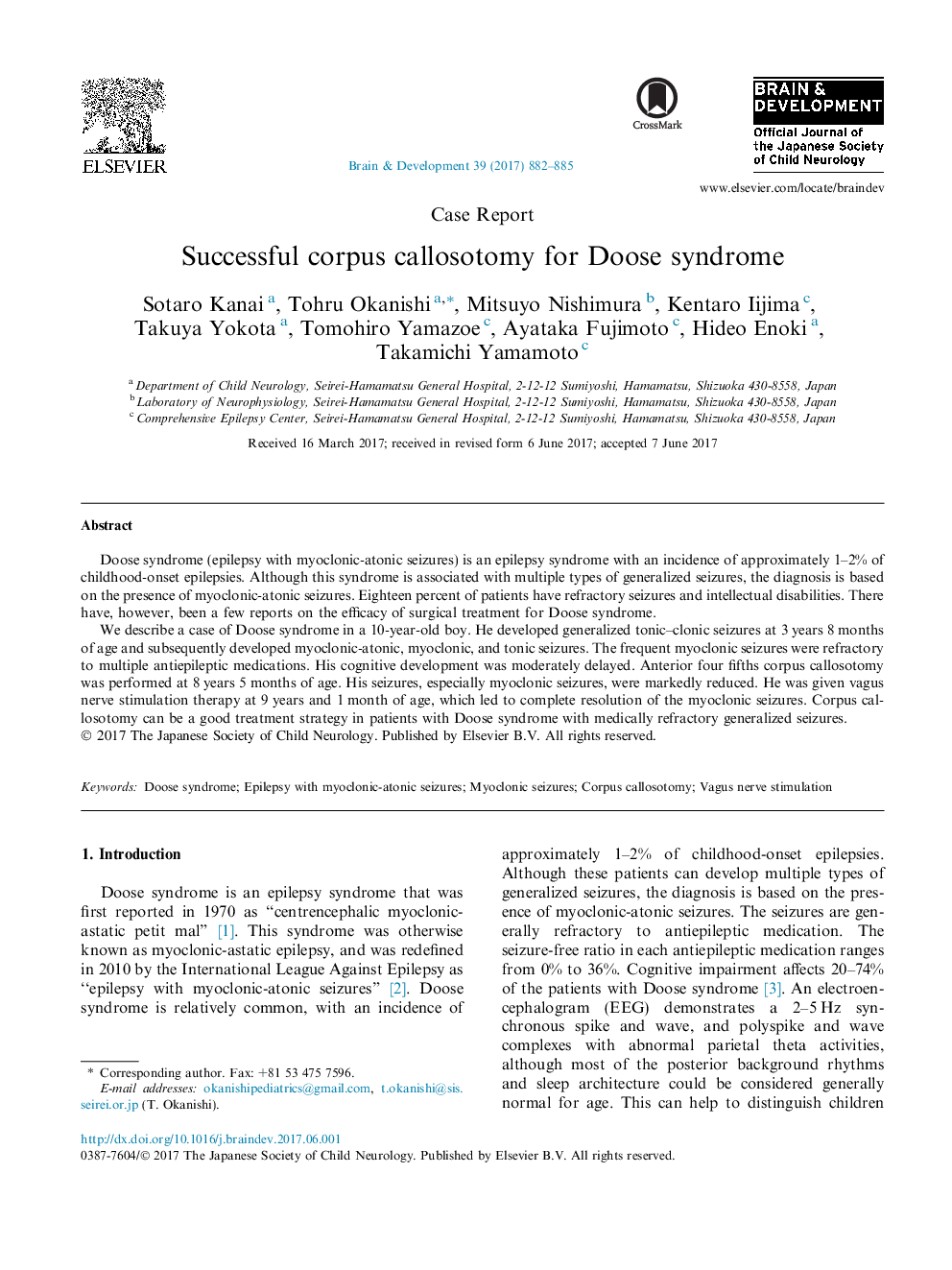| Article ID | Journal | Published Year | Pages | File Type |
|---|---|---|---|---|
| 5626364 | Brain and Development | 2017 | 4 Pages |
Doose syndrome (epilepsy with myoclonic-atonic seizures) is an epilepsy syndrome with an incidence of approximately 1-2% of childhood-onset epilepsies. Although this syndrome is associated with multiple types of generalized seizures, the diagnosis is based on the presence of myoclonic-atonic seizures. Eighteen percent of patients have refractory seizures and intellectual disabilities. There have, however, been a few reports on the efficacy of surgical treatment for Doose syndrome.We describe a case of Doose syndrome in a 10-year-old boy. He developed generalized tonic-clonic seizures at 3Â years 8Â months of age and subsequently developed myoclonic-atonic, myoclonic, and tonic seizures. The frequent myoclonic seizures were refractory to multiple antiepileptic medications. His cognitive development was moderately delayed. Anterior four fifths corpus callosotomy was performed at 8Â years 5Â months of age. His seizures, especially myoclonic seizures, were markedly reduced. He was given vagus nerve stimulation therapy at 9Â years and 1Â month of age, which led to complete resolution of the myoclonic seizures. Corpus callosotomy can be a good treatment strategy in patients with Doose syndrome with medically refractory generalized seizures.
